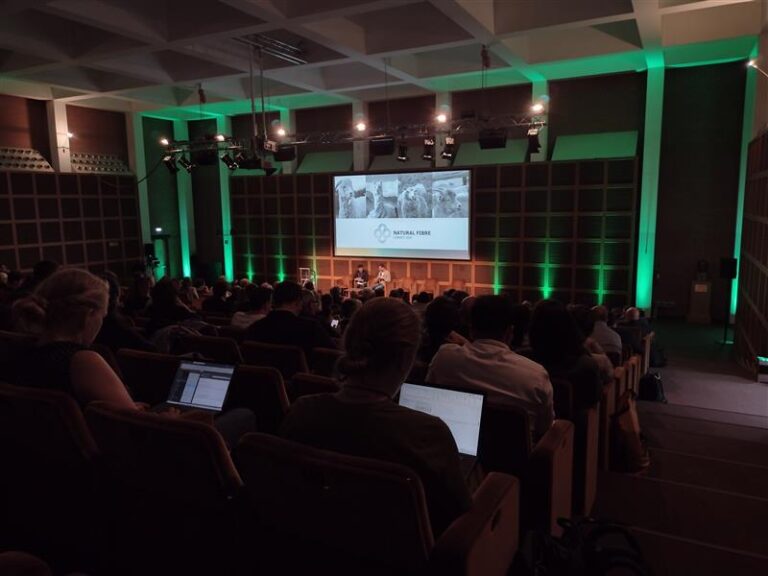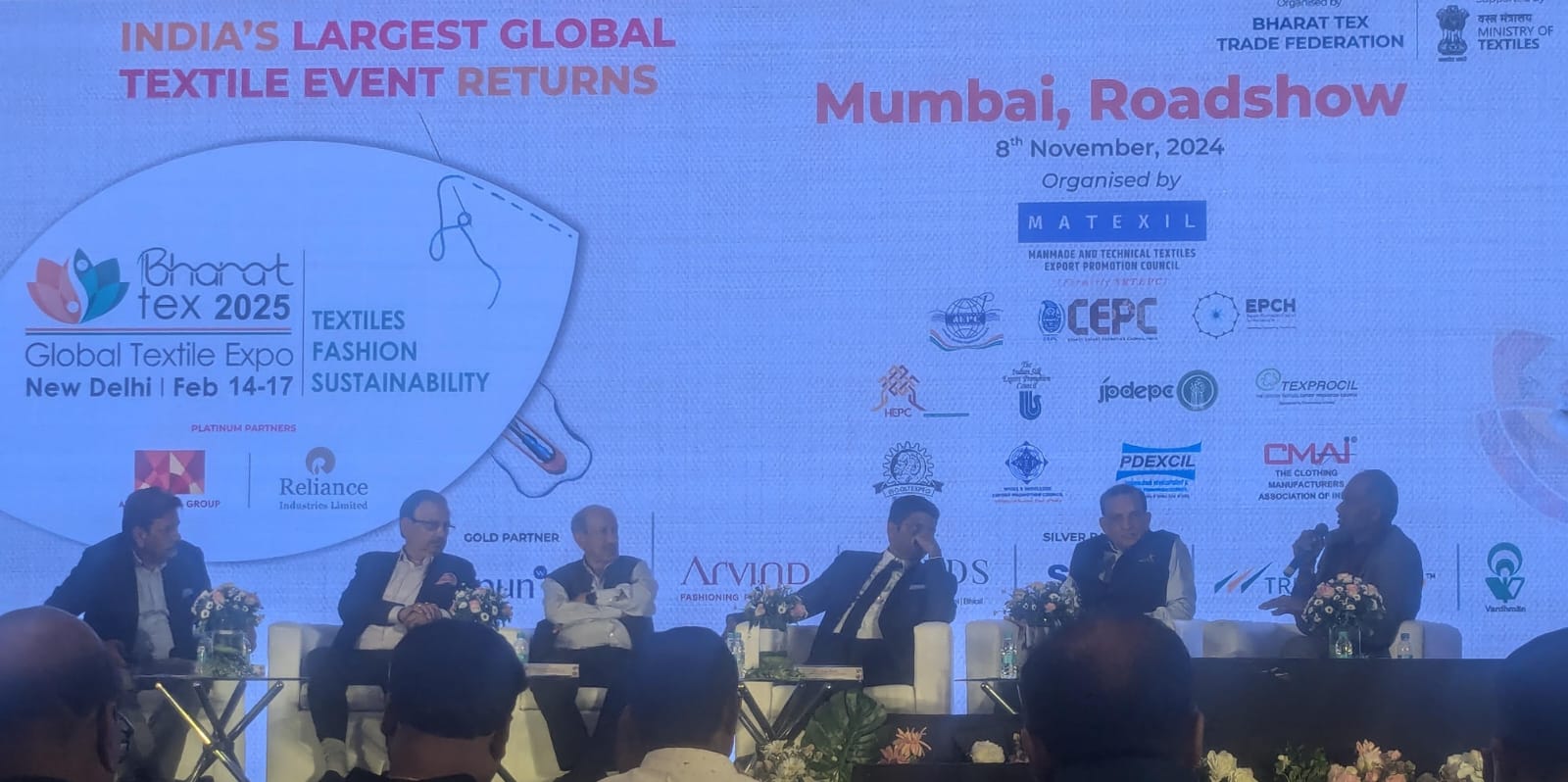FW
A request by Reliance Industries has led to the Ministry of Commerce and Industry-led Director General of Trade Remedies (DGTR) launching an anti-dumping investigation into the import of mono ethylene glycol (MEG) from Kuwait, Saudi Arabia, and Singapore. A key textile material, MEG is used to produce polyester staple fibre (PSF).
A significant producer of polyester staple fiber through the Chemicals and Petrochemicals Association of India (CPMA), Reliance has raised concerns over the impact of imported MEG on the domestic industry.
Accusing the above-mentioned countries of dumping MEG imports into India at prices below normal value, CPMA alleges, this not only causes material injury to domestic producers but also threatens the industry’s future viability. With the support of Indian Glycol, the association has called for imposition of an anti-dumping law on the material’s imports.
In response, DGTR will examine MEG imports from Apr 01, 2023, to Mar 31, 2024, while it will also make an injury assessment of the fiscal years 2020-21, 2021-22, and 2022-23. The exact production costs in the countries under investigation are not publicly available. However, the significantly lower export prices suggest dumping practices, says CPMA
Though anti-dumping measures typically aim to protect domestic producers, they could potentially hurt downstream industries, such as garment, fabric, and yarn manufacturers, that rely on MEG imports. Raising production costs for these sectors, anti-dumping duties reduce their competitiveness in the global market.
The Northern European fashion retailer C&A recycles denim leftovers from its own factory in Moenchengladbach, Germany into a new flooring material.
Specially designed for retail environments, the flooring material is made by recycling about 80 per cent of leftovers that include jeans fabrics, cork underlays from the bottle industry and wooden boards processed using natural products such as vegetable fats and natural rubber. The fibers are produced by the Swiss family-run company Lico using natural products such as vegetable fats and natural rubber. Moreover, the company uses energy from renewable sources, including a photovoltaic system and local hydropower plants.
The jeans flooring has been awarded with Environment Product Declaration (EPD) and the Blue Angel Award. It also won the Green Collection Award 2023.
The company providing the jeans scraps, the C&A FIT (Factory for Innovation in Textiles), is a pioneering facility in Mönchengladbach, Germany. Opened in 2021, the factory manufactures around 1,000 pairs of jeans every day using advanced automation, digitalisation and electricity from renewable sources. The factory also conserves water by using only 10–15 liters per a pair of jeans compared to the industry standard of 70 liters.
Indonesia will maintain its ban on e-commerce platform Temu, citing concerns over its potential impact on local micro, small, and medium enterprises (MSMEs).
Communications and Informatics Minister Budi Arie Setiadi stated that Temu's business model, which involves direct sales from factories to consumers, violates Indonesian trade regulations. The platform, owned by PDD Holdings, was deemed harmful to the economy and local businesses.
Minister Budi emphasized the government's commitment to ensuring that the digital space benefits society, rejecting platforms that could negatively affect MSMEs. Temu's repeated attempts to register in Indonesia since September 2022 have been unsuccessful, with authorities blocking its entry due to trademark conflicts and policy concerns.
Temu, which has expanded across Southeast Asia, continues to face resistance in Indonesia, following similar actions against TikTok Shop last year.
Kim Glas, President and CEO of the National Council of Textile Organizations (NCTO), has called on President Biden to intervene in the ongoing strike at East and Gulf Coast ports. In a letter, Glas highlighted the damaging effects of the strike on the US textile industry, which is already struggling due to Hurricane Helene.
Glas stressed the urgent need for a resolution, stating the strike threatens both domestic competitiveness and the broader textile and apparel co-production chain in the Western Hemisphere, which supports 2 million workers and $40 billion in trade.
With 70 per cent of US textile exports going to Western Hemisphere free trade partners, the disruption is impacting critical supply chains. Glas also noted the hurricane's devastation, which has left some companies with severe damage and others with halted operations.
The industry has already seen 21 plant closures in the past 18 months, making this strike even more damaging. Glas appealed to President Biden for immediate action to prevent further disruptions and protect the industry’s recovery efforts.

India's pivotal role in the global natural fiber industry took center stage at the Natural Fiber Connect (NFC) conference held in Biela on September 19-20, 2024. Discussions and presentations highlighted India's significant contributions to sustainable fiber production and its commitment to eco-friendly practices. The conference, which brought together industry leaders, researchers, and policymakers from around the world, showcased India's rich heritage in natural fibers such as cotton, jute, silk, and coir. Speakers emphasized the country's efforts to promote sustainable farming practices, support farmer livelihoods, and develop innovative fiber-based products.
Wide focus on India during discussions
Presentations and discussions emphasized India's vast and diverse production of natural fibers, including cotton, jute, silk, wool, and coir. India's position as a leading producer of several of these fibers underscores its vital role in the global natural fiber industry.
The conference also highlighted India's commitment to sustainable practices in fiber production and processing. Innovative approaches, such as organic farming and the use of natural dyes, were showcased, demonstrating India's leadership in environmentally responsible fiber production. The discussions underscored the significant economic and social impact of the natural fiber industry in India, particularly in rural communities. The sector provides livelihoods for millions and contributes substantially to the country's economy.
Several speakers underscored the importance of supporting smallholder farmers who form the backbone of India's natural fiber industry. The conference highlighted programs aimed at providing farmers with access to training, technology, and fair market prices
The NFC served as a platform for fostering collaboration and partnerships between Indian stakeholders and their global counterparts. The conference emphasized the importance of knowledge sharing, technology transfer, and joint initiatives to further advance the natural fiber industry.
The conference concluded with a positive outlook on India's future in the natural fiber industry. With its vast resources, skilled workforce, and commitment to sustainability, India is poised to play a leading role in meeting the growing global demand for eco-friendly fibers.

The Indian home textile industry is on the cusp of a remarkable revival, with projections indicating an 8-10 percent sales growth for the fiscal year 2024-25 (FY25). This positive outlook comes after a challenging period in FY23, and it's attributed to a combination of key change factors, reveals a report by the credit rating agency CareEdge Ratings. This positive outlook is driven by a number of factors like: stable raw material prices, improvement in demand from key importing nations, and robust domestic consumption.
Several factors have led to the growth spurt. For example, rising per capita income with higher disposable incomes consumers are willing to spend more on discretionary items like home decor and textiles. Rapid urbanization is another factor as the ongoing shift of population to cities is driving demand for housing and, consequently, home furnishings. A buoyant housing sector is further boosting demand for home textiles. And more importantly, greater hygiene awareness is another growth driver as the COVID-19 pandemic has heightened awareness about hygiene, leading to increased consumption of home textiles.
Navigating a turbulent time
The past three years have been a rollercoaster ride for the Indian home textile industry. After a major demand surge in FY22, due to pandemic-induced lockdowns and increased consumer spending on home improvement, the sector faced significant challenges in FY23.
Table: Growth trends over the years
|
Fiscal year |
Key trends |
Growth (%) |
Challenges |
|
FY22 |
High demand, increased exports |
Strong |
Rising raw material prices, supply chain disruptions |
|
FY23 |
Demand slowdown, inflationary pressures |
Moderate |
High freight costs, geopolitical uncertainties |
|
FY24 |
Recovery in demand, stable raw material prices |
Strong |
Elevated freight costs, inflationary pressures persist |
Catalyst to change
CareEdge Ratings highlights several key factors contributing to the projected growth.
Stable raw material prices: After a period of volatility, cotton prices are expected to stabilize, providing much-needed relief to manufacturers.
Improved demand from key export markets: As major economies recover, demand for home textile products from key export markets like the US and Europe is anticipated to improve.
Growth in domestic consumption: Rising disposable incomes, increasing urbanization, and a growing preference for branded products are driving domestic demand.
Government initiatives: Supportive government policies, such as production-linked incentive (PLI) schemes, are encouraging investment and expansion in the sector.
Table: Home textile sector growth rate
|
Year |
Growth rate |
Key Events |
|
FY22 |
5% |
Steady growth driven by pre-pandemic economic conditions |
|
FY23 |
-2% |
Decline due to COVID-19 disruptions and supply chain issues |
|
FY24 |
3% |
Recovery initiated as the pandemic effects subsided |
|
FY25 (Projected) |
8-10% |
Significant growth anticipated due to key change factors |
In fact, several home textile companies in India are already reaping the benefits of this favorable market environment. For example, Welspun India, the leading player has reported a strong increase in sales in recent quarters, driven by both domestic and export demand. Bombay Dyeing, the established brand has successfully repositioned itself to cater to the evolving preferences of urban consumers. Indo Count Industries, the export-oriented company is capitalizing on the growing global demand for Indian home textiles.
It maybe noted that the growth of the Indian home textile sector is in sync with global trends. The global home textile market was valued at $122 billion in 2023 and is expected to reach $134 billion by the end of 2024. It's projected to grow at a CAGR of 5-5.5 per cent to reach $185 billion by 2030. India, with its strong raw material base, skilled workforce, and competitive manufacturing capabilities, is poised to play a key role in this expanding market.
The Indian home textile sector is set for a strong growth path in coming years. The convergence of various factors, both domestic and global, is creating a conducive environment for businesses. Companies that can adapt to the changing market dynamics and leverage their strengths are likely to thrive in this promising landscape.
The Maharashtra Government has signed an MoU with OFAB Tech to set up a state-of-the-art textile facility in Wardha, Maharashtra.
To be set up with an investment of Rs 750 crore, the facility will help boost the textile sector in Vidharbha besides catalysing rapid industrial development in Wardha, says Devendra Fadnavis, Deputy Chief Minister.
Focusing on empowering local communities, the project will be executed on a hub-and-spoke model, extending its benefits to the rural areas surrounding Wardha. It will provide employment opportunities to both skilled and semi-skilled workers, ensuring the benefits of industrialisation reach a wide range of the local population.
By selecting Wardha for the establishment of this facility, the government aims to ensure a balanced regional development across the state, opine local industrialists. The city’s strategic position and untapped potential make it ideal location for the establishment of a new textile hub in the state.
Confederation of Indian Textile Industry (CITI) has hailed the Government's decision to extend the Remission of Duties and Taxes on Exported Products (RoDTEP) scheme by one year for exporters in Domestic Tariff Areas (DTA), and for Advance Authorisation (AA), Special Economic Zones (SEZ), and Export-Oriented Units (EOUs) by three months.
CITI has also welcomed the government’s move to continue the Interest Equalisation Scheme (IES) and introduce Minimum Import Price (MIP) for knitted fabrics, saying, this will help improve the textile trade balance and boost export competitiveness.
The RoDTEP scheme aims to alleviate the costs of exporting goods by offering refunds on uncredited federal, state, and local taxes, levies, and tariffs that are not covered by other programs. However, a recent reduction in RoDTEP rates by 0.1 per cent to 0.5 per cent for approximately 991 textile items, is a setback for the industry advocating for higher rates to main global competitiveness, says Rakesh Mehra, Chairman, CITI.
Despite the rate reduction, the RoDTEP scheme will help ease financial burdens on Indian exporters by covering non-creditable taxes and levies. It will also enable India sustain export competitiveness, particularly in labor-intensive sectors like textiles and apparel, he adds.
To help the industry achieve its export target of $350 billion by 2030, CITI has urged for a long-term extension of the RoDTEP scheme. It also advised the Government to reconsider the upward revision of RoDTEP rates to provide much-needed relief and support the growth of India’s textile exports.
The Fabtex Georgia 2024 International Textile Industry Fair concluded with great success, drawing over 1,050 professional visitors from 11 countries, including Russia, India, China, and Georgia. The event highlighted Georgia's growing influence in the textile sector.
This year's exhibition featured 52 exhibitors from Georgia, Turkey, Azerbaijan, UAE, Uzbekistan, and China. The focus was on knitted and woven fabrics, workwear, accessories, sewing machinery, and ready-to-wear items. Exhibitors praised the fair for creating new business opportunities.
Emre Çetin from SM Tekstil highlighted the company's success in connecting with new customers at the event, which will enhance their export operations in the region. He also pointed out that Georgia’s free trade agreements with the USA and Europe make it a favorable market for expanding business.
Ali Yasin Sartık from Ozsar Tekstil stressed the significance of Georgia’s strategic position for re-exporting textiles to the Caucasus. He noted that the company attracted buyers from neighboring countries and expressed enthusiasm for participating in next year’s event.
Ayk Kazaroglu from Kazaroglu Tekstil highlighted Georgia’s demand for fashionable fabrics, while Cahit Taşpınar from Telpa Tekstil noted the strong market for accessories and high-quality materials, especially for uniforms and military clothing.
Sophia Angholadze from the Georgian Association of Fashion Designers (GAFA) expressed her enthusiasm for the fair’s positive effect on the local fashion industry. She emphasized that Fabtex plays a crucial role in providing Georgian producers with access to high-quality fabrics and accessories.
Georgia’s strategic position at the intersection of Western Asia and Eastern Europe, coupled with favorable free trade agreements, makes it a key player in textile manufacturing. The country’s rich textile history and partnerships with international brands like Zara and Puma further strengthen its appeal to investors.
The 2nd Fabtex Georgia International Textile Industry Fair will be held from September 26-28, 2025, at Expo Georgia in Tbilisi.
The garment and textile industry in Vietnam has launched 3,500 FDI-funded projects worth $37 billion, as per a report by the Vietnam Textile and Apparel Association. With FDI accounting for 65 per cent of the country’s garment and textile industry’s export turnover, Vietnam is attracting large corporations from China, Japan, India, South Korea, and Taiwan (China) to build modern factories in Vietnam.
One of these projects being initiated includes a production unit for manufacturing towels, fabrics and DTY yarn at Rang Dong Textile Industry Park. Initiated by the Singapore-based Sanbang Company, the 103,000 sq m factory is being built with an investment of $30 million. It is scheduled to be operational by Q4, FY25 and will produce 15,000 tons of towels, 14 million meters of woven fabric and 15,000 tons of DTY yarn annually.
According to a representative from the Sanbang Company, this project is slated to create jobs for local farmers shifting from agriculture to industry. The park will also house a $203-million textile dyeing factory being built by the Japan-based Toray Group.
ReGal Vietnam Textile Company also plans to build a $20 million factory at the Hoa Phu Industrial Park, Dak Lak province.
The 3-hectare Hong Kong-funded factory will create employment opportunities for 800 workers, says, Ding Feng, Director, ReGal Group. The group aims to move some of its factories from China to the Hoa Phu Industrial Park in order to create more jobs for local workers and offer a better allowance to the company’s partners.
According to the Vietnam Textile and Apparel Association, with its 100-million-people market, high-quality human resources, and open investment attraction policies, Vietnam's garment and textile industry is witnessing a huge rise in foreign direct investments. The country is also expanding the export markets for its products by entering into many FTAs.












